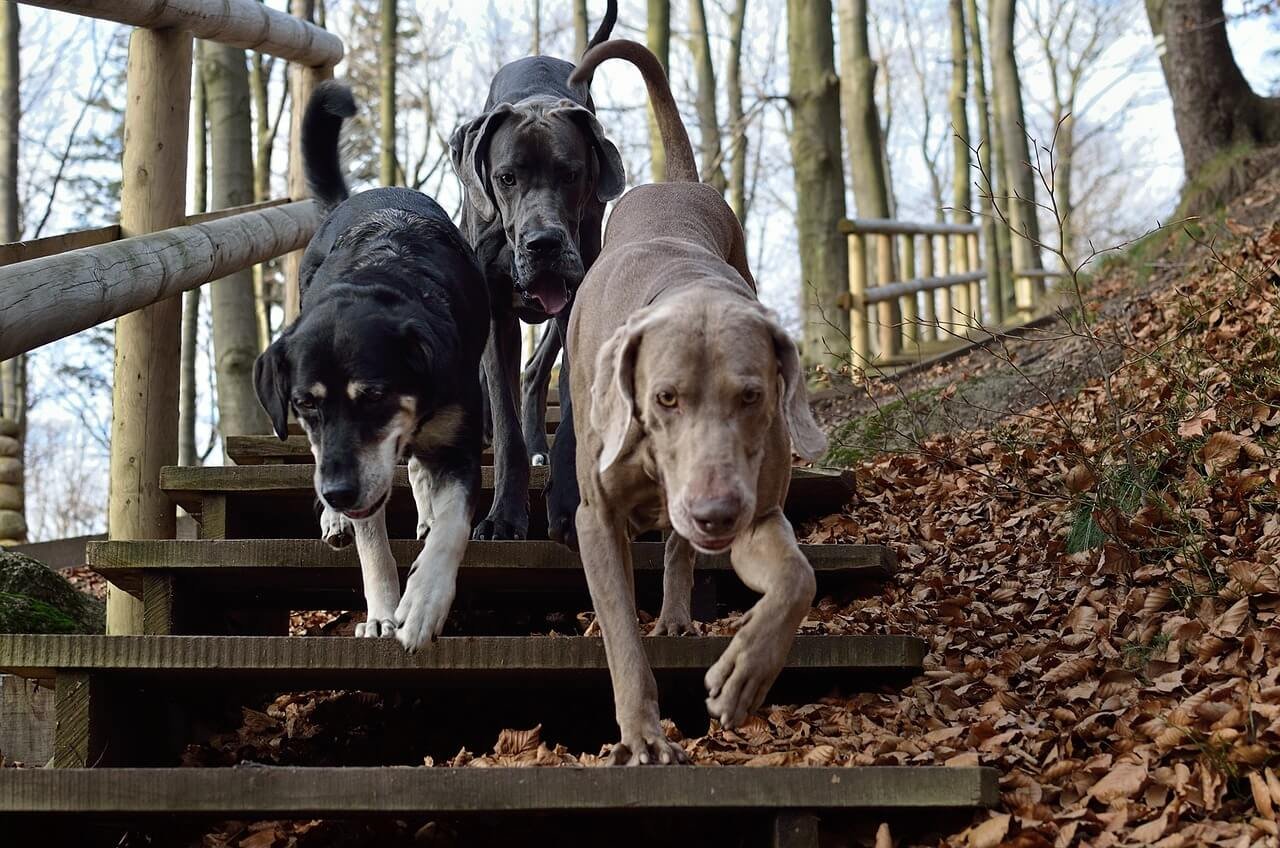Understanding Dog Jaw Pain: Causes, Symptoms, and Solutions
As dog owners, we often focus on our furry friends’ energy levels, coat condition, and overall happiness. However, one area that can easily go unnoticed is their jaw health. Dog jaw pain can stem from a variety of causes, ranging from dental issues to injuries or underlying medical conditions. If left untreated, it can significantly impact your dog’s quality of life, making eating, playing, and even sleeping uncomfortable. But how do you recognize the signs of jaw pain in dogs, and what steps can you take to address it? In this blog post, we’ll explore the common causes, symptoms, and treatment options for dog jaw pain, along with practical tips to ensure your pup stays comfortable and pain-free.
Common Causes of Dog Jaw Pain
Dog jaw pain can arise from a variety of sources, some of which are more serious than others. Understanding the potential causes can help you identify the issue early and seek appropriate care. Here are some of the most common culprits:
Dental diseases like gingivitis, periodontal disease, or tooth abscesses
Fractured or broken teeth due to chewing hard objects
Trauma or injury to the jaw from accidents or fights
Temporomandibular joint (TMJ) disorders affecting jaw movement
Oral tumors or growths causing discomfort
Recognizing these causes is the first step toward addressing your dog’s discomfort. Early intervention can prevent minor issues from escalating into more severe problems.
Signs Your Dog May Be Experiencing Jaw Pain
Dogs are experts at hiding pain, but there are subtle signs that can indicate they’re struggling with jaw discomfort. Observing changes in their behavior or habits can help you catch the problem early. Here are some key symptoms to watch for:
Reluctance to eat or dropping food while chewing
Excessive drooling or pawing at the mouth
Swelling or visible lumps around the jaw area
Bad breath caused by infections or decay
Whining or yelping when touched near the jaw
If you notice any of these signs, it’s important to investigate further. Early detection of jaw pain can make treatment easier and less stressful for your dog.
Check this guide 👉Understanding Dog Jaw Chattering Spasms: Best 7 Tips!
Check this guide 👉Infected Dog Tooth: Best 7 Health Tips!

Preventive Measures for Dog Jaw Pain | When to Consult a Veterinarian |
|---|---|
Brush your dog’s teeth regularly | Persistent bad breath |
Provide safe chew toys to avoid fractures | Difficulty eating or drinking |
Schedule annual dental check-ups | Visible swelling or lumps |
Avoid hard objects that can damage teeth | Sudden changes in behavior |
Monitor for signs of oral trauma | Unexplained weight loss |
Home Remedies to Soothe Dog Jaw Pain
While professional veterinary care is essential for severe cases, there are some home remedies that can provide temporary relief for mild jaw pain. These remedies should complement, not replace, professional advice. Here are some gentle ways to soothe your dog’s discomfort:
Offer soft foods like boiled chicken or mashed vegetables
Apply a cold compress to reduce swelling in the jaw area
Use a pet-safe oral rinse to clean the mouth gently
Massage the muscles around the jaw to relieve tension
Ensure your dog gets plenty of rest to aid recovery
These measures can help alleviate discomfort temporarily, but always consult your vet if the pain persists or worsens.
Professional Treatments for Dog Jaw Pain
For more serious cases of dog jaw pain, professional intervention may be required. Veterinarians have a range of tools and treatments at their disposal to address the root cause of the issue. Here are some common professional approaches:
Dental cleanings to remove plaque and treat gum disease
Tooth extractions for severely damaged or infected teeth
Antibiotics to combat bacterial infections
Pain medication to manage discomfort during recovery
Surgery for fractures, tumors, or TMJ-related issues
Professional treatments are tailored to your dog’s specific needs and can provide long-term relief. Trusting your vet’s expertise ensures your dog receives the best possible care.
Preventive Dental Care for Dogs
Preventing dog jaw pain starts with maintaining good oral hygiene. Regular dental care not only keeps your dog’s teeth clean but also reduces the risk of painful conditions. Here are some preventive measures you can incorporate into your routine:
Brush your dog’s teeth at least 2-3 times a week using pet-safe toothpaste
Provide dental chews or treats designed to reduce plaque buildup
Schedule professional cleanings as recommended by your veterinarian
Avoid feeding sticky or sugary foods that can cling to teeth
Monitor your dog’s chewing habits to prevent damage from hard objects
By prioritizing preventive dental care, you can minimize the chances of your dog developing jaw pain and ensure their mouth stays healthy for years to come.
Nutritional Tips for Jaw Health
What your dog eats plays a crucial role in their overall jaw health. A balanced diet not only supports strong teeth and gums but also aids in recovery if they’re already experiencing discomfort. Here are some nutritional tips to consider:
Include calcium-rich foods like yogurt or cheese to strengthen bones
Add omega-3 fatty acids to reduce inflammation in the jaw area
Offer raw or lightly cooked meats for natural chewing stimulation
Avoid overly hard kibble that could strain the jaw muscles
Ensure fresh water is always available to keep the mouth hydrated
Proper nutrition is key to maintaining a healthy jaw and preventing issues down the line. A well-balanced diet can make a noticeable difference in your dog’s oral health.
Exercises to Strengthen Your Dog’s Jaw
Strengthening your dog’s jaw muscles can help prevent injuries and improve their overall oral health. While these exercises should be done gently, they can provide long-term benefits. Here are some safe and effective activities:
Encourage gentle tug-of-war games with soft ropes or toys
Use interactive toys that require controlled chewing
Introduce puzzle feeders to engage their jaw muscles during meals
Practice short sessions of fetch with lightweight balls or discs
Avoid overexertion by keeping sessions brief and fun
Incorporating these exercises into your dog’s routine can build resilience and reduce the likelihood of jaw-related issues. Always tailor activities to your dog’s age and physical condition for optimal results.
FAQ
Can dog jaw pain be caused by teething?
Yes, puppies often experience jaw pain during teething as their adult teeth come in. Providing soft chew toys can help ease discomfort.
How can I tell if my dog’s jaw pain is serious?
Look for signs like refusal to eat, excessive drooling, or visible swelling. If these symptoms persist, consult a vet immediately.
Is bad breath a sign of jaw pain in dogs?
Yes, bad breath can indicate dental issues like infections or abscesses, which may cause jaw pain.
Can I give my dog human painkillers for jaw pain?
No, human medications like ibuprofen or acetaminophen can be toxic to dogs. Always consult your vet for safe options.
How often should I check my dog’s mouth for issues?
Aim to inspect your dog’s mouth weekly and schedule annual dental check-ups with your veterinarian.
Conclusion: Prioritizing Your Dog’s Jaw Health
Dog jaw pain is more than just an inconvenience—it can significantly impact your pet’s well-being if left unaddressed. By staying vigilant for signs of discomfort, practicing preventive care, and seeking professional help when needed, you can ensure your dog remains happy and healthy. Remember, a pain-free jaw means your pup can continue enjoying their favorite activities, from mealtime to playtime. As a responsible pet owner, your proactive approach to their oral health will strengthen the bond you share and improve their quality of life for years to come.
Do Cats Have Taste Buds? Best 7 Expert Tips! – Discover how cats experience flavors and why their taste is so unique.
Do Dogs Have Taste Buds? Best 7 Expert Tips! – Discover how dogs experience taste, their preferences, and what it means for their diet and health.
Can Cats Taste Sweet? Best 7 Expert Tips! – Discover why cats can’t taste sweetness, how it affects their diet, and tips to keep them healthy and happy.
Can Dogs Taste Sweet? Best 7 Expert Tips! – Discover how dogs perceive sweetness, which foods are safe, and tips to manage their sweet cravings responsibly.





